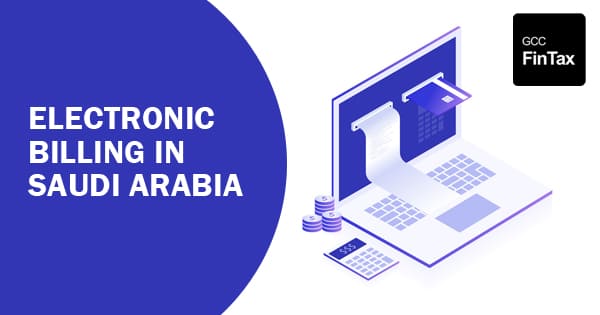
Quite an eventful year this 2020 is proving to-be from VAT standpoint. Actions taken by GAZT in the past few months were commendable and applauded.
First, the amnesty scheme was announced, then came the announcement of increase in VAT percentage, followed by the introduction of Real Estate transaction tax, and now implementing the Electronic billing (e-invoicing).
Sequence of events, leading to the implementation of e-invoicing:
July 2018, Memorandum of Understanding (MoU) was signed between GAZT and SAMA which was represented by ESAL (an e-platform) to encourage business to implement the e-invoicing, with an aim to enhance more transparency in business and to reduce the tax evasion cases.
September 2020, GAZT issued draft regulation on e-invoicing for comments and suggestions from Industry experts and business; and
December 2020, GAZT announced the approval of Electronic billing regulation, which shall be applied from December 2021.
GAZT released the FAQ’s and the introductory guide on e-invoicing both in Arabic and English, which shall help business, to understand and implement the concept of e-invoicing.
E-invoice or electronic invoice is not a defined term for KSA VAT purposes. However, in one of the guides released by GAZT, e-invoice been defined as the ‘issuing and receiving of VAT compliant invoice in an electronic format.’
E-invoicing means an Invoice generated, stored, and amended in electronic format, through an electronic system. Meaning, handwritten or scanned invoices either in MS-Word or MS-Excel will not be considered as e-invoice.
Even the credit / debit notes, shall also need to be generated and stored electronically because of amendment to the original invoice raised electronically.
E-invoicing regulation will be extended to all taxpayers who are subject to VAT in the Kingdom, including the third parties issuing tax invoices on behalf of taxpayers subject to VAT, but excludes non-resident taxpayers.
Interesting to note that, the e-invoicing will be implemented in two phases:
For the implementation of both phases, GAZT shall issue the mechanism in less than 6 months’ time from now.
Way forward
Considering only 200 odd working days (take out holidays and weekends) for a go-live date of December 04th 2021, Business should start planning and investing in electronic system, for a seam-less transition from manual or handwritten invoices to an electronic regulations complied e-invoicing, for the main revenue stream, as well as for other incomes, in order to avoid penalties and fines.
Disclaimer: Content posted is for informational & knowledge sharing purposes only, and is not intended to be a substitute for professional advice related to tax, finance or accounting. The view/interpretation of the publisher is based on the available Law, guidelines and information. Each reader should take due professional care before you act after reading the contents of that article/post. No warranty whatsoever is made that any of the articles are accurate and is not intended to provide, and should not be relied on for tax or accounting advice.
You can access Law including Guidelines, Cabinet & FTA Decisions, Public Clarifications, Forms, Business Bulletins for all taxes (Vat, Excise, Customs, Corporate Tax, Transfer Pricing) for all GCC Countries in the Law Section of GCC FinTax.